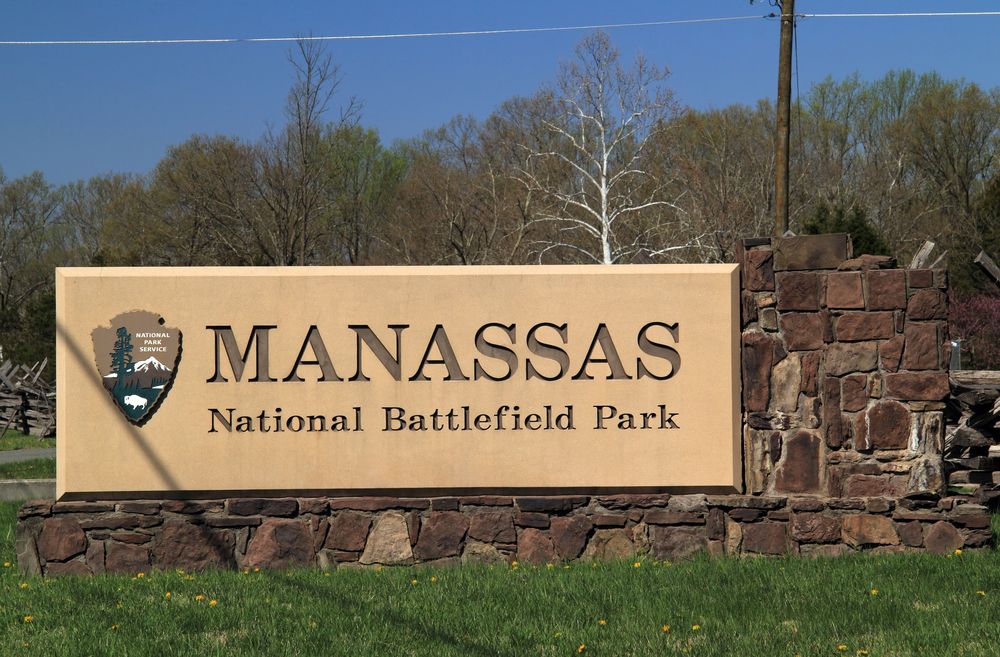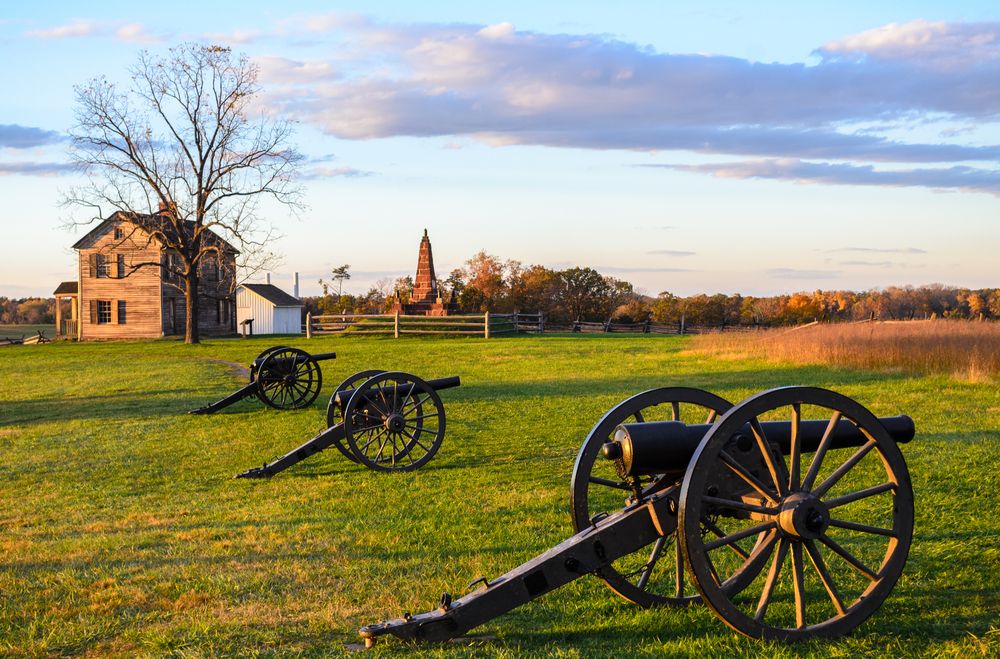Manassas National Battlefield Park is more than 5,000 acres located north of Manassas that preserves the site of two major Civil War battles.

In July 1861, the First Battle of Bull Run saw the Confederates defeat the Union Army, who retreated back to Washington, DC. It was here during the first major battle of the war that General Thomas J. Jackson earned his nickname: Stonewall. In August 1862, the Confederates once again defeated the Union Army on this battlefield.

Manassas National Battlefield, located in Prince William County, Virginia, preserves the site of two major Civil War battles: the First Battle of Bull Run (July 21, 1861) and the Second Battle of Bull Run (August 28-30, 1862). These battles were pivotal moments in the early years of the Civil War, shaping the course of the conflict and leaving a lasting impact on American history.
First Battle of Bull Run (First Manassas)
The First Battle of Bull Run, also known as the First Battle of Manassas, was the first major land battle of the Civil War. Union forces, under Brigadier General Irvin McDowell, marched from Washington, D.C., to confront Confederate troops led by Brigadier General P.G.T. Beauregard. The battle was chaotic and marked by confusion on both sides. Despite initial Union successes, Confederate reinforcements under General Joseph E. Johnston arrived, turning the tide in favor of the Confederates. The Union forces were forced to retreat to Washington, D.C., and the battle shattered any illusions of a quick and easy war.
Second Battle of Bull Run (Second Manassas)
The Second Battle of Bull Run saw Union forces under Major General John Pope attempting to break the Confederate lines held by General Robert E. Lee’s Army of Northern Virginia. The battle was fierce and involved multiple engagements over several days. Confederate forces, including the newly formed “Stonewall” Brigade under General Thomas J. Jackson, held their ground against repeated Union assaults. The Union forces eventually retreated, marking another Confederate victory and solidifying Lee’s control over northern Virginia.
Significance and Legacy
The battles at Manassas were significant for several reasons. They demonstrated the need for more extensive training and preparation for both Union and Confederate armies. The battles also highlighted the importance of logistics and communication in warfare. The Confederate victories at Manassas boosted Southern morale and solidified the reputation of leaders like General Jackson, who earned the nickname “Stonewall” for his steadfast defense.
Today, Manassas National Battlefield offers visitors a chance to explore the historic sites and learn about the events that took place here. The Henry Hill Visitor Center provides exhibits, films, and interpretive displays that detail the battles and their significance. The park also features walking trails, monuments, and historic structures, such as the Stone House and the Stone Bridge, which played key roles in the battles.
Whether you’re a history enthusiast or simply looking to connect with America’s past, Manassas National Battlefield provides a rich and educational experience. Plan your visit today and step back in time to explore the grounds where pivotal moments in the Civil War unfolded.
Antietam National Battlefield
Cowpens National Battlefield
Fort Donelson National Battlefield
Fort Necessity National Battlefield
Kennesaw Mountain National Battlefield
Manassas National Battlefield
Monocacy National Battlefield
Petersburg National Battlefield
Richmond National Battlefield
Stones River National Battlefield
National Military Parks
Chickamauga and Chattanooga National Military Park
Fredericksburg and Spotsylvania National Military Park
Gettysburg National Military Park
Kings Mountain National Military Park
Shiloh National Military Park
Vicksburg National Military Park
